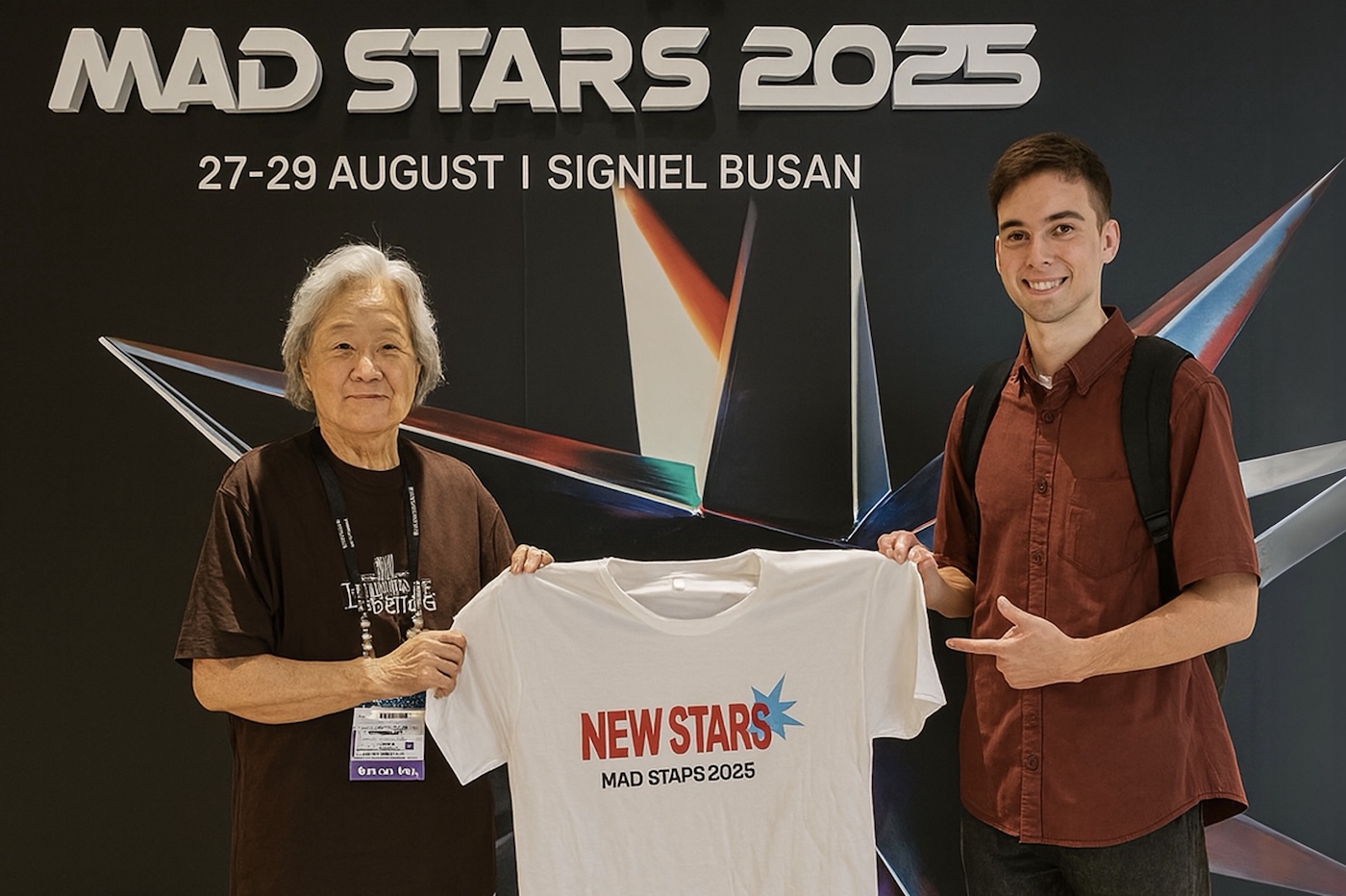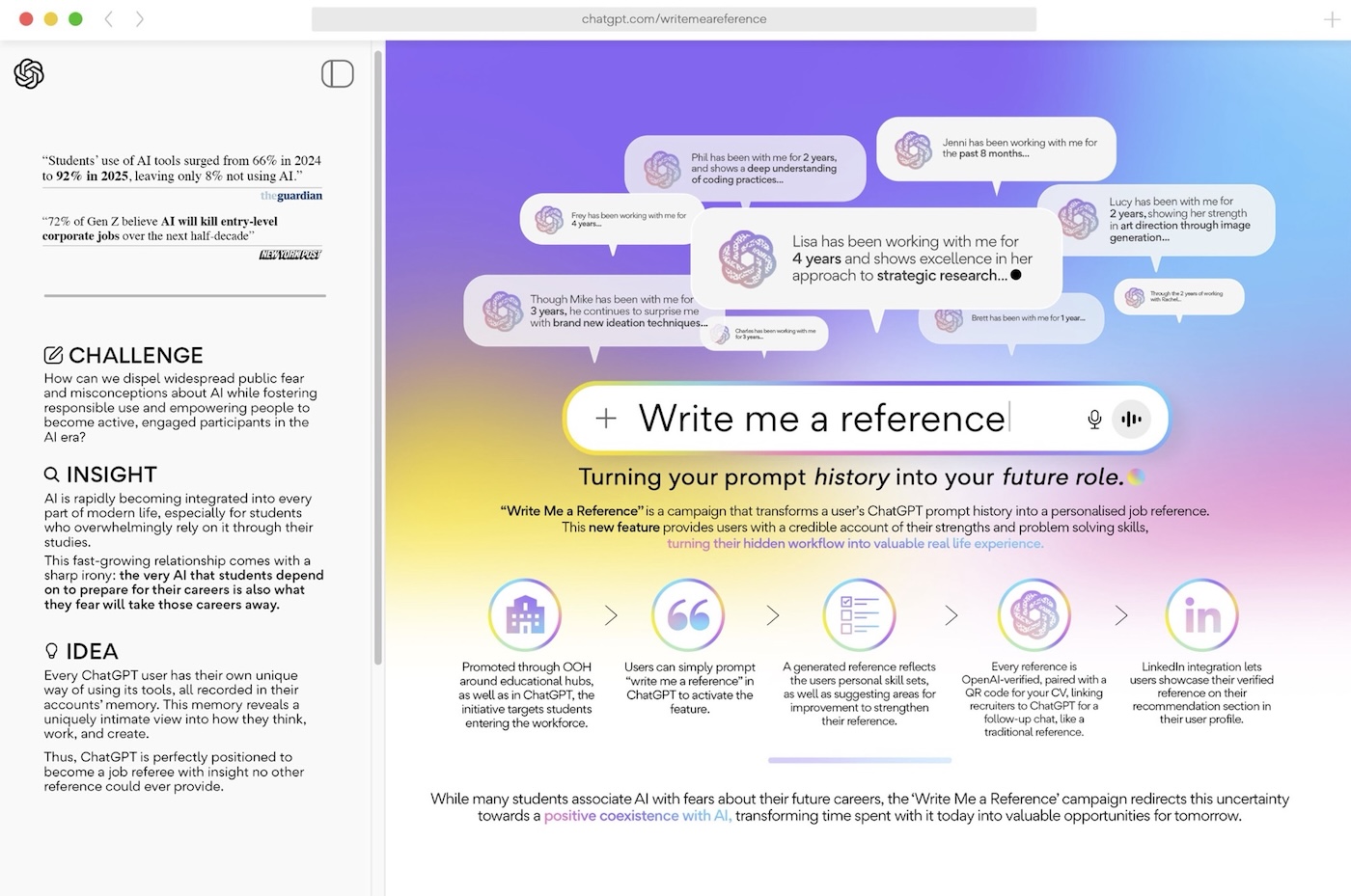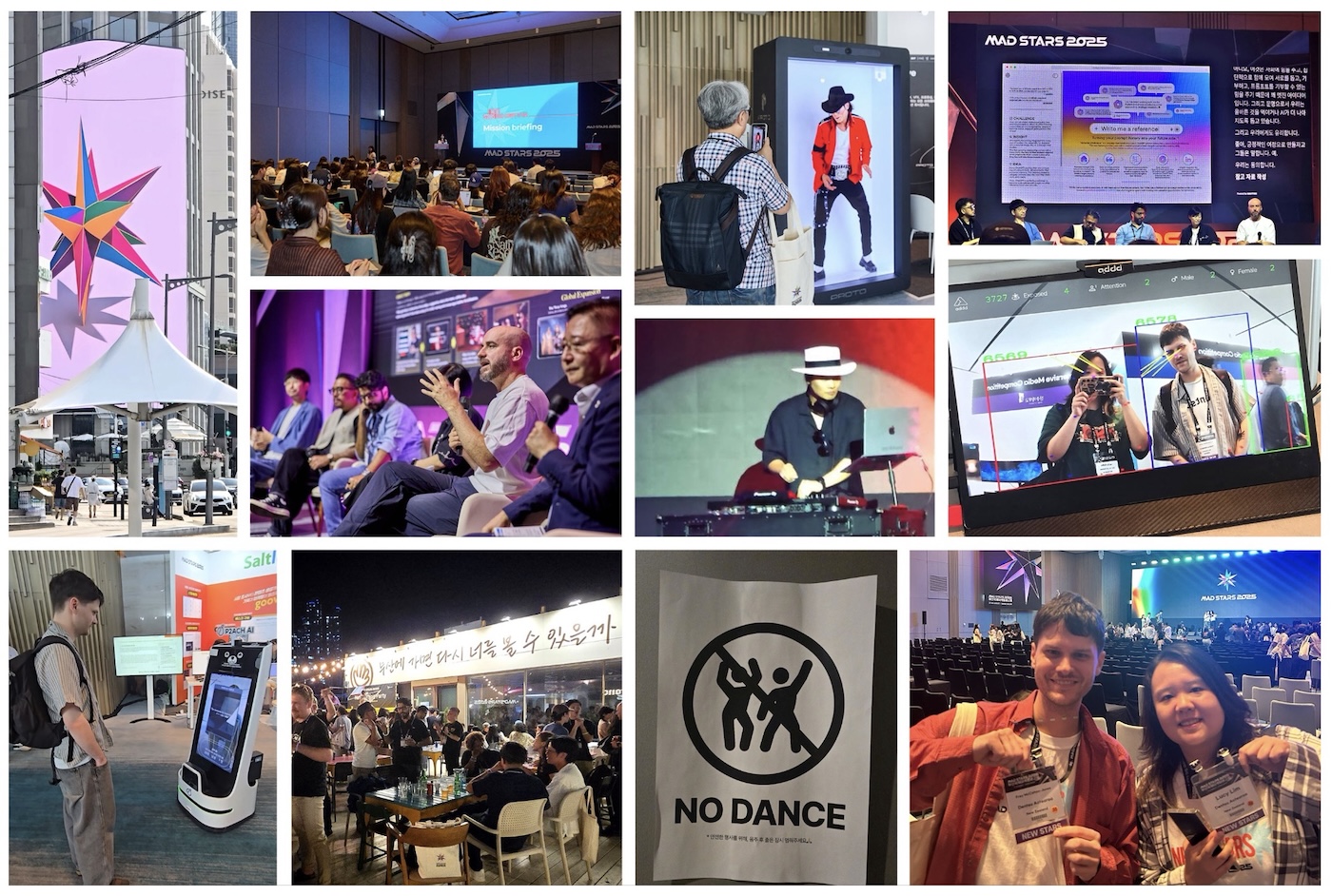Dentsu Aotearoa’s Junior Creative Duo, Aged 60 and 20, Take on MAD STARS

dentsu junior creatives Lucy Lim (Art Director) and Frey McCahon-Jones (Copywriter), after being age-profiled by AI.
Two young creatives from dentsu Aotearoa, Lucy Lim (Art Director) and Frey McCahon-Jones (Copywriter), recently represented New Zealand at the MAD STARS Global Festival in Busan, South Korea. Competing in the ‘New Stars’ challenge against 42 teams from around the world, they were tasked with tackling society’s fear of AI in just 30 hours — with the technology itself mandatory in their process. Their idea, ‘Write Me a Reference’, turned ChatGPT prompt histories into verifiable job references and earned them the Chairperson’s Special Award. Here’s their take on the experience.
A robot wheels through the crowd and stops in front of us. It scans Frey’s face, declares him a “20-year-old male” (knocking more than a decade off his actual age), then serves up an ad for a chunky masculine wristwatch. Next it locks onto Lucy Lim, late 20’s, and delivers the devastating news that she’s 60. A skin-cream ad plays while, five metres away, the guy quietly steering the robot with a gaming controller looks the other way.
This bit of AI-powered advertising tech was just one of many on display at this year’s AI-themed MAD STARS Global Festival in Busan, South Korea, right in the midst of a body-baking heatwave.
We were there representing dentsu Aotearoa in the ‘New Stars’ competition — a frantic 30-hour showdown between 42 junior creative teams from around the world. The brief in a nutshell: help ease society’s fear of AI.
Using AI in the development of each team’s idea was mandatory (a rule that probably nudged the heatwave up another degree). And during this mandatory partnership, we found ourselves berating ChatGPT when it failed, joking that it would remember every insult once it became our sentient overlord. A dumb joke that eventually sparked our idea.
With 30 hours quickly melting away, we dug into research on AI-driven job anxiety. We found that students, in particular, rely heavily on AI to prepare for their careers — yet fear the same AI-technology will take those careers away.

That’s when our dumb joke came back to us. That record of abuse we were building in our prompt history was also a record of how we think, research, and solve problems creatively. Valuable insight employers might value. From this, we shaped ‘Write me a Reference’ — a new ChatGPT feature that transforms your hidden prompt history into a verifiable job reference, linkable to platforms like LinkedIn.
This effort earned us “The Chairperson’s Special Award”, delivered as a PDF, which, in the digital age of AI, we’re assuming is worth more than gold.

With the residual adrenaline still lingering in our blood, we drank cold beer through our teeth at the networking parties. We listened to an endless stream of opinions on AI, in an endless stream of different accents. From indifference to genuine fear, to wine slurred disdain from a particularly AI-fatigued judge.
Like the idea boards we saw from other teams, there was no uniformity in how people viewed the technology or its potential uses. For us, what remained consistent was how it’s still core human insights, ones which cut clean through to your ear, that determine meaningful work and the technology’s most interesting uses.
The search for these core human insights remains just as much of a mystifying struggle for robots as it does for humans. A struggle that sometimes involves insulting pieces of software and distracting each other with terrible jokes. (They are just jokes, please have mercy on us sentient master).
